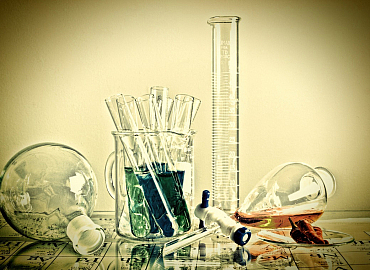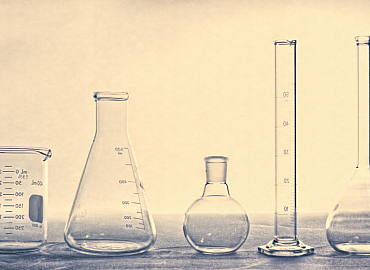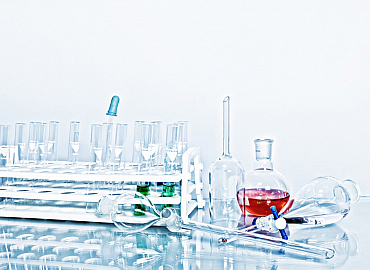Calcium is the main structural component of the human osseous system and regulator of intracellular metabolism. Its basic mass is concentrated in bones (calcium depot). Calcium participates in many physiological processes: muscle activity, regulation of blood pressure and vascular permeability, blood clotting ability, permeability of cell membranes and transportation of elements via them, hormone secretion, transmission of nerve impulses, etc.
The calcium deficiency results is a state called hypocalcemia.
Consequences of hypocalcemia
The calcium deficiency in blood can cause serious diseases that are often difficult to cure. The hypocalcemia results in the destruction of teeth and bones, the progression of osteoporosis. In addition, there are the following consequences of calcium deficiency:
- weakness;
- rapid fatigability;
- performance decrement;
- anxiety, irritability;
- skin dryness and sloughing, hair loss and brittleness of nails;
- spasms, numbness and pain in extremities;
- urolithiasis;
- disorder of blood clotting ability;
- immunity weakening and susceptibility to infections;
- cardiac impairment, etc.
The calcium deficiency can become a sign of a number of diseases and pathological processes, such as rickets, pancreatitis, hepatic and renal failure, endocrinopathy.
Calcium Cosmeceutical Creams by Repharm
-
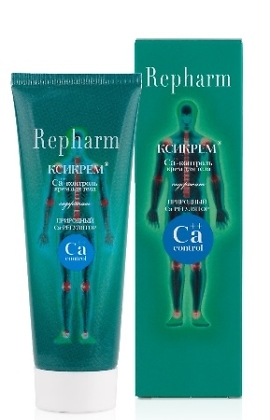
KSICREAM CA-CONTROL Calcium Body Cream, 70 g
550.00 ₽€ 6.33
-

KSIGEL CA-CONTROL Rosemary Calcium Body Cream, 70 g
440.00 ₽€ 5.07In stock in
Prices in our partner's shops may not be the same as ours
-
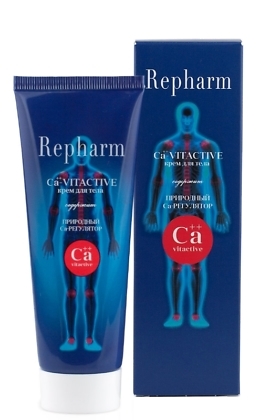
CA-VITACTIVE Calcium Body Cream, 70 g
560.00 ₽€ 6.45
Causes of hypocalcemia
The deficiency of macronutrient elements is formed due to the disorder of calcium metabolism, when its absorption and assimilation are retarded, or its excretion from the body intensifies. There are the following causes of hypocalcemia:
- hypoparathyroidism;
- enteropathy;
- acholia (cessation of bile flow into the small bowel);
- D-hypovitaminosis, due to the lack of sunlight or renal insufficiency;
- unbalanced diet;
- toxic shock syndrome;
- pancreas disease;
- intake of some medications (diuretics, anticonvulsants, antibiotics);
- sodium excess or lack of magnesium in blood: in the first case, when the excess sodium salts is removed, the body has to use its calcium reserves; the lack of magnesium causes the calcium accumulation in the walls of blood vessels but not in the bone tissue.
Calcium Cosmeceutical Creams by Repharm
-

PEPKSICREAM CA-CONTROL Calcium Body Cream, 70 g
620.00 ₽€ 7.14In stock in
Prices in our partner's shops may not be the same as ours
Treatment of hypocalcemia
In general, the balanced diet can replenish the calcium deficiency. The diet should include a large amount of food containing calcium: all types of dairy products, fish, eggs, all types of greens, beans, seeds, nuts, etc. At the same time, fatty foods, carbonated drinks, chocolate, fiber, acidic food should be excluded.
However, in the majority of cases the calcium deficiency has to be replenished with the help of medications. Sometimes the use of calcium supplements can be enough. However, in case of some diseases coming with hypocalcemia, it is necessary to take a complex of drugs that not only replenishes the lack of this element in the body, but also regulates the metabolic processes.
The following medications can be used for hypocalcemia treatment:
- vitamin D3: increases the membrane permeability of the gastrointestinal tract, and, thereby, activates the calcium absorption, and also promotes the calcium absorption by bone tissues (Cholicalciferol, Aquadetrim, Videin);
- vitamin D2 (ergocalciferol);
- calcium medications. They can be represented by monomedications (calcium lactate, calcium chloride), combined medications (calcium + vitamin D or magnesium, Calcium-D3 Nycomed, Vitrum calcium, Orthocalcium); multivitamin complexes (not recommended in case of serious calcium deficiency, as they contain too little calcium: Complivit, Elevit, Kalcinova).
There should also be considered the group of medications regulating the calcium metabolism:
- analogues of parathyroid hormones: they reduce the destructive effect of osteoclasts on the bone tissue, stimulate the activity of osteoblasts, and provide an analgesic effect (Calcitonin, Miacalcic, Teriparatide);
- bisphosphonates: block the activity of osteoclasts, provide the restoration of bone tissue and regulate the metabolic processes, act as natural regulators of calcium metabolism at the cellular level, jugulate pain and inflammation in case of the musculoskeletal system diseases (etidronate, zoledronate, KSI cream).
The bisphosphonate complex in form of creams, namely KSI cream, which has no analogues, is considered unique. It has the same properties as pills or injections based on bisphosphonates, but, at the same time, it does not have any side effects and restrictions concerning the duration of use.
Larisa Degtyareva, Professor of Bogomolets National Medical University
 5 Apr 2017 г.
5 Apr 2017 г. 



